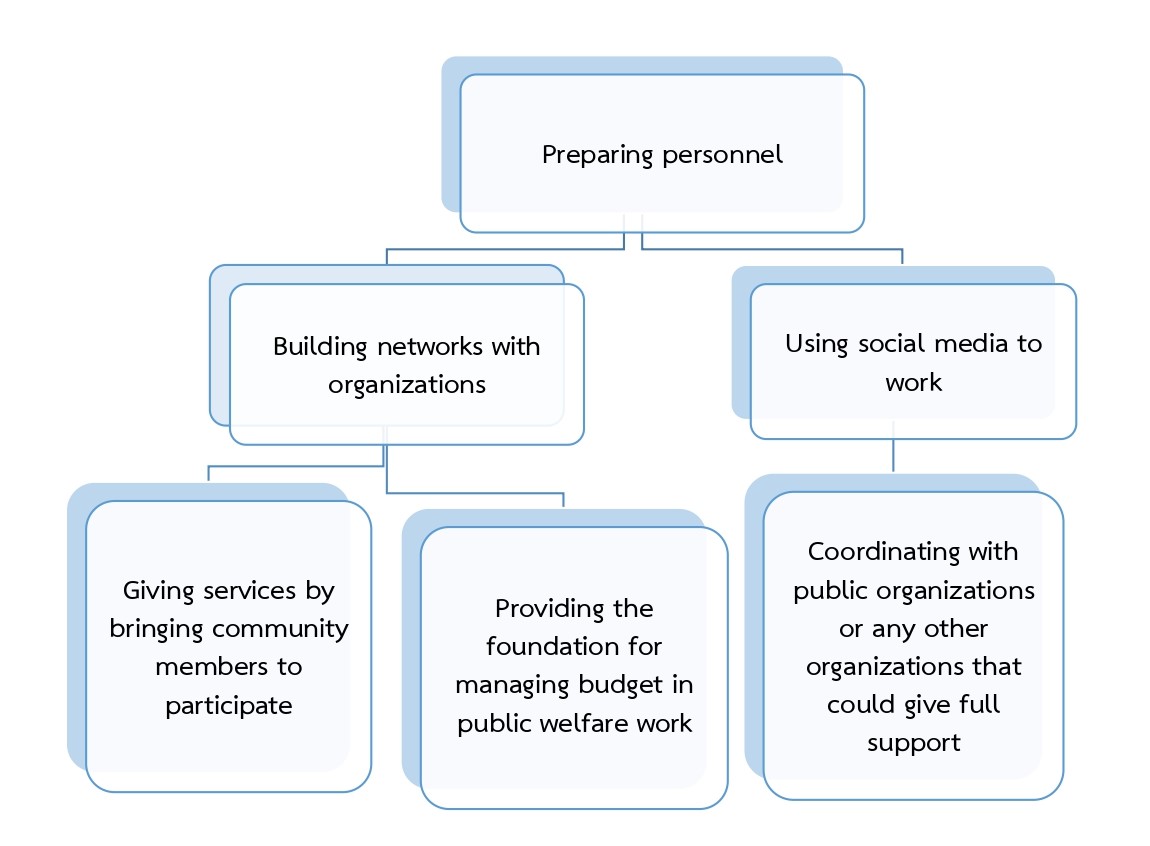PUBLIC WELFARE WORK MANAGEMENT OF BUDDHIST CLERGY IN PHUNPHIN DISTRICT, SURAT THANI PROVINCE
Keywords:
Management, Public Welfare Work, Buddhist ClergyAbstract
Background and Objectives: The public welfare work is a work in the form of volunteering, which is ready to support. It shows loving-kindness and generosity to fellow humanity. The public welfare work is still a major duty of Buddhist monks from Buddha era to the present. The objectives of this research article were; To study the overall public welfare work, to study the problems and threats of the public welfare work, and to propose guidelines about the development of the public welfare work of Buddhist clergy in Phunphin district, Surat Thani province.
Methodology: The qualitative research was conducted for this study. The key informants consisted of Buddhist ecclesiastical official monks who were considered by purposive sampling. Nine individuals who were key informants participated in in-depth interviews. The in-depth interview with structured questionnaires was conducted as the research tool to collect data. Data analysis was conducted using contextual analysis techniques.
Main Results: The results indicated that the public welfare work management of Buddhist clergy in Phunphin district, Surat Thani province, consisted of facilitating the building and location, being the leader in event conducting and coordinating, and subsiding. The problems and obstacles were insufficient personnel, budget, coordination, and cooperation among community members.
Involvement to Buddhadhamma: The application of the Buddhist principles in the management of public welfare work of the Buddhist clergy to be appropriate and virtuous within the teaching and discipline of Buddhism is concerned with efficiency and effectiveness, which is the Buddhist innovation in Thai society both in the present and the future. It uses Saṅgahavatthu (The four bases of social solidarity), Sārāṇīyadhamma (The six states of conciliation), and Brahmavihāra (Four sublime states of mind) to support people, the community, and society. The major purpose and objective are for the Buddhist clergy to do public welfare work for those facing troubles. The guidelines include 1) To conduct for help, 2) To support others’ benefits, 3) To keep any public welfare, and 4) To help any people. These approaches are the important objectives of the Buddhist clergy for supporting people in the community with appropriateness according to place and time. These objectives are also making for a good relationship between households, temples, and schools in another way. These objectives are to develop a quality of life for people to be balanced mentally and physically concerning materialistic needs. They are also for developing people in physical, verbal, and mental by having temples and Buddhist monks take an important lead to develop the society in many aspects of the development of mentality, quality of life, community and society, and the preservation of art and culture. They can bring happiness to people, society, and the nation to further prosperity for developing public welfare work to be sustainable into the future.
Conclusions: According to the study, the proposed guidelines of solution for public welfare work management of the Buddhist clergy in Phunphin district, Surat Thani province, included preparing personnel, building networks with organizations, using social media to work, giving services by bringing community members to participate, coordinating with public organizations or any other organizations that could give full support, and providing the foundation for managing budget in public welfare work.
References
Kanthadian, W. (2019). The concept of Buddhism for society Sanghadhura and public welfare in the Buddhist way. Printing Law.
Maha Thera Society. (2019). Operating Guide, Sathon Sangha of the Sangha Synod. The Office of Public Welfare, Maha Thera Association.
Mahachulalongkornrajavidyalaya University. (2018). Buddhism and society. Mahachulalongkornrajavidyalaya Printing House.
Office of Region 16. (2004). Sangha operation manual. Office of Region 16.
Phra Theeraphan Thitthitamo. (2018). Education of the public work of Nakhon Sawan clergy on social development. Academic research journal, 5(2), 25-34.
Phra Thep Pariyatsuthi. (1997). Sangha and religion. Mahachulalongkornrajavidyalaya.
Phrabaidika Phongsakhan Khantipalo & Phramaha Kritthanin Seththametee. (2017). Strategies for public welfare management of the Sangha Administrators Located Mueang District, Chachoengsao Province [Unpublished research report]. Mahachulalongkornrajavidyalaya University.
Phrakru Prabhassittikun. (2012). The Role of the Sangha in Public Aids of the Sangha Community in Amphoe Chaturaphak Phiman, Roi-et Province [Unpublished master's thesis]. Mahachulalongkornrajavidyalaya University.
Phrakrubaidika Suraphon Asabho. (2015). Development of a Public Welfare Model in Buddhist Paradigm [Unpublished doctoral dissertation]. Mahachulalongkornrajavidyalaya University.
Phramaha Bua Piyawano. (2006). Social order of temples. Roongrot Printing.
Phramaha Santi Thanawaro. (2017). Application of Buddhism in the public work of the Thung Khru clergy Bangkok [Unpublished master's thesis]. Mahachulalongkornrajavidyalaya University.
Sangha Synod. (2019). Cotton Public Work Guide of the Sangha Synod. Office of the Public Works of the Sangha Synod.
Wutthakan, G. (1998). The development of the Sangha and religion for national confidence. Department of Religious Affairs.

Downloads
Published
How to Cite
Issue
Section
License
Copyright (c) 2023 Journal of Buddhist Anthropology

This work is licensed under a Creative Commons Attribution-NonCommercial-NoDerivatives 4.0 International License.








